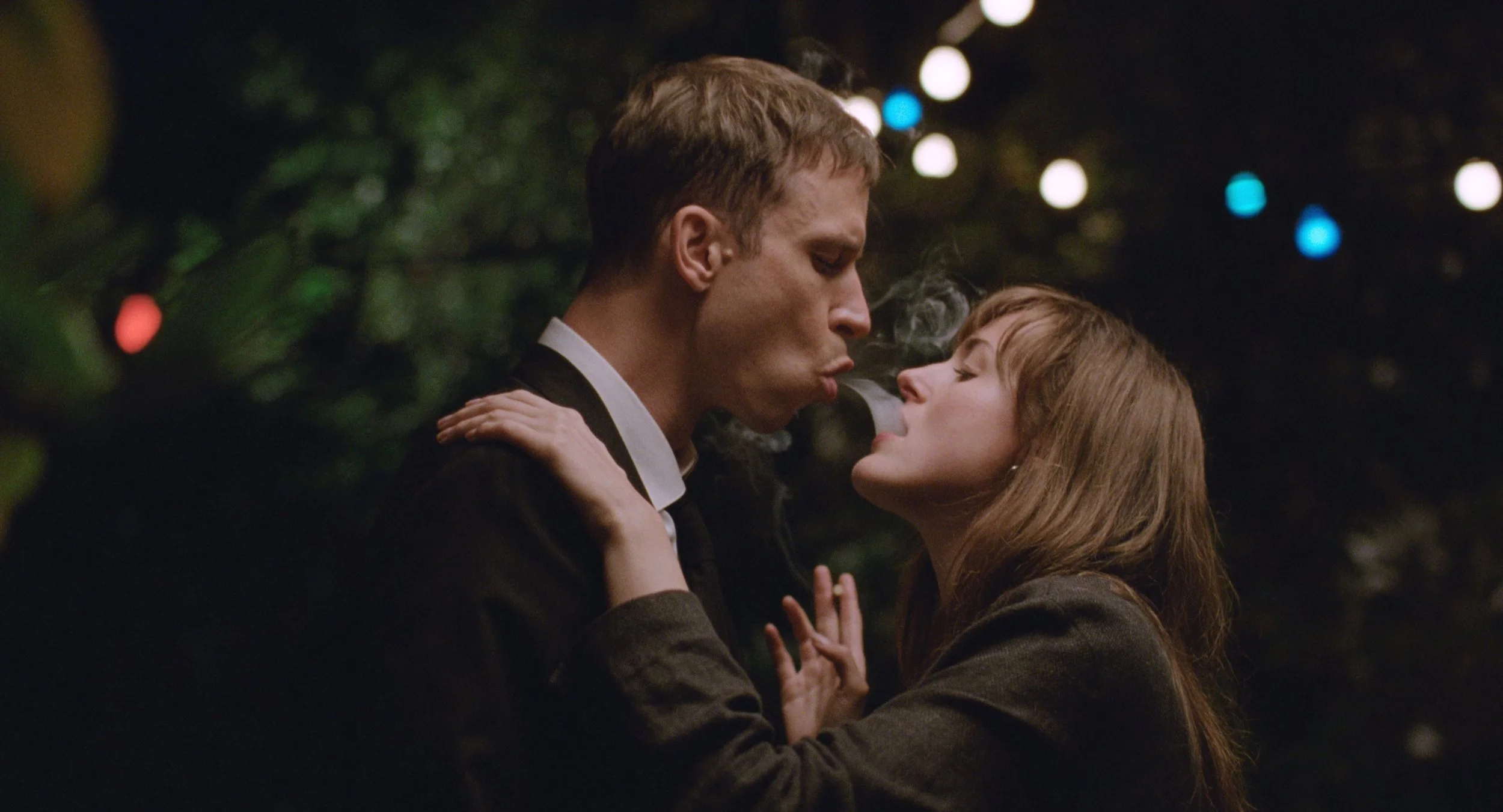The Worst Person in the World
Joachim Trier concludes his Oslo trilogy with a romantic comedy of a very dark hue.
Joachim Trier was born in Copenhagen but is Norwegian by nationality and his latest piece, written in collaboration with his frequent writing partner Eskil Vogt, is the third of his feature films to be set in Oslo. His very first work, 2006’s Reprise, was one of those and it had a quirky individuality although each of his subsequent films has been notably different in character. If this film’s predecessor, Thelma (2017), was his most disappointing, responses so far to The Worst Person in the World suggest that it may have an appeal that will establish him more widely than ever before. Indeed, its leading actress, Renata Reinsve, was a popular winner of the Best Actress award at the 2021 Cannes Film Festival.
Reinsve’s role is that of Julie who makes an unusual central character in that she is a relatively young woman, 29 years old in fact, who is continually changing her mind. We are told at the start that this will be a film with a prologue, twelve chapters and an epilogue and one of the main features of the prologue is that it reveals how Julie while keen to be independent switches her goal all too frequently. Does she want to study medicine or psychology or photography? The answer is that she is sincerely keen on each, but only until she moves on to the next one – and all too easily the same thing can apply to the men in her life. She does, in fact, settle down with an older man, Aksel (Anders Danielsen Lie), even though he would like to have children and she wants other experiences first. What she is really seeking is up for grabs again when she flirts with a man closer to her own age, Eivind (Herbert Nordrum), regardless of the fact that he is married. Their game of flirtation carried on under the pretence that that is not what is really happening is one of the film’s comic highlights.
The Worst Person in the World sets off at a terrific pace and at once establishes a tone of ironic comedy. Early on a recording is heard of ‘The Way You Look Tonight' which reminds us of such songs being featured in the films of Woody Allen. Then, as Trier’s film progresses, we are reminded even more strongly of Woody Allen's work, in particular those films that he made in his middle period. That happens regardless of the fact that this film is up-to-the-minute in its sexual frankness (one of the shorter chapters is entitled ‘Oral Sex in the Age of #MeToo’). The humour is terrific but the characters nevertheless feel real enough for us to take them seriously and Reinsve’s great quality is her ability just to be in front of the camera while fully inhabiting the character that she is playing. Her two leading men are ideally cast too and, for all the echoes of Allen, the film has a tone of its own (it has a female narrator who exists only as a voice over but who on occasion comments on a scene in such a way that she and the actors share some of the same dialogue and such neat moments echo the singularity found in Reprise).
Setting out with such confidence, the film seems bound for success and for much of the time it achieves that. However, even though being told in advance that there are twelve chapters to go through means that we are prepared for a long movie, the film does come to seem overlong at 127 minutes. But what really didn't work for me (yet may work for you) is the way in which, having set an ideal tone (a comic surface with underlying depth) the film later on virtually dispenses with the humour and turns to drama as its prime mode. At this point we suddenly feel that we have landed in a different film entirely. A review in the magazine Sight and Sound called the film essentially a romcom, but at this stage it is anything but that. The acting in these late scenes is very adept, but it still feels as though we have changed movies to the extent that the emotion being sought doesn't fit in with what has gone before. Consequently, I ended up less than satisfied. Even so I had enjoyed greatly what had been on offer for much of the time, responding very positively to its diverting freshness and its appealing sureness of touch. Although the indecisive, unsettled Julie could easily have been an irritating character, the film, aided by Reinsve’s total credibility, is particularly adept in enabling us to understand this woman. In Julie we recognise somebody who is struggling to decide who she really is and who she wants to be and is at the same time aware of the risk that if she gives in to what is not the right choice she may find herself playing a supporting role in her own life.
Original title: Verdens verste menneske.
MANSEL STIMPSON
Cast: Renate Reinsve, Anders Danielsen Lie, Herbert Nordrum, Maria Grazia Di Meo, Helene Bjørneby, Deniz Kaya, Sofia Schandy Bloch, Vidar Sandem, Tumi Løvik Jakobson, Eia Skjøndberg, Thea Stabell.
Dir Joachim Trier, Pro Andrea Berentsen Ottmar and Thomas Robsahm, Screenplay Joachim Trier and Eskil Vogt, Ph Kasper Tuxen, Pro Des Roger Rosenberg, Ed Olivier Bugge Coutté, Music Ola Fløttum, Costumes Ellen Dæhli Ystehede, Sound Gisle Tveito.
MK2 Productions/Oslo Pictures/Arte France Cinéma/B-Reel Films/Film i Väst/Snowglobe Films-Mubi.
127 mins. Norway/France/Sweden/Denmark. 2021. US Rel: 4 February 2022. UK Rel: 25 March 2022. Cert. 15.


